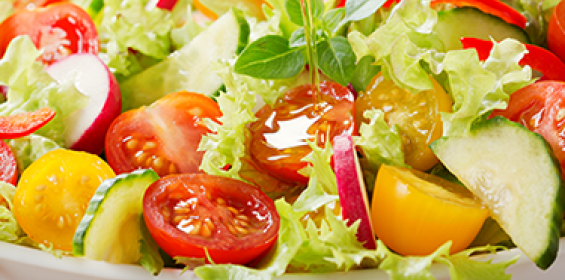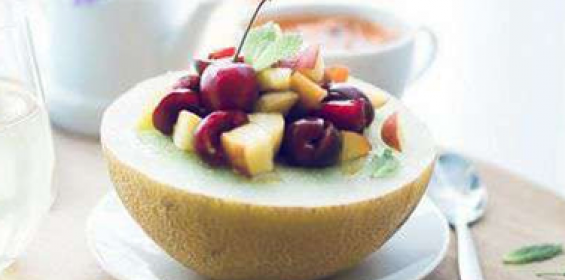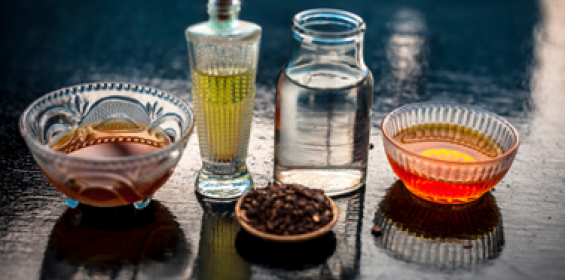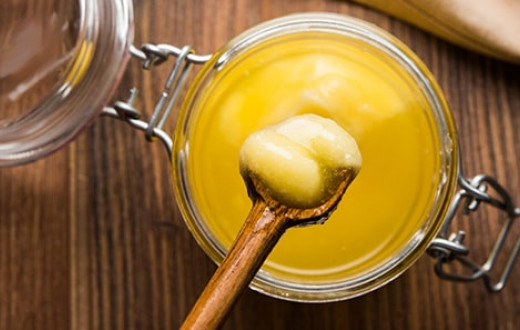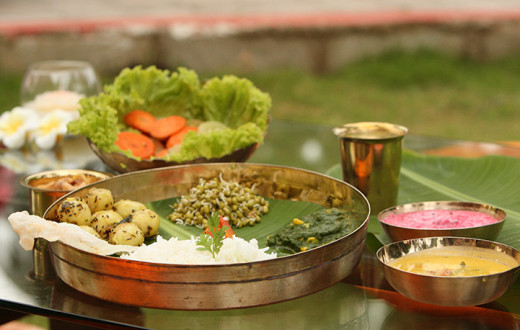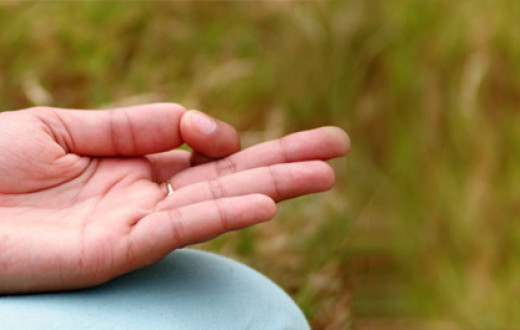Back to the basics
A shrill sound emanated from a corner of the room. Everybody looked up, wondering if a furry feathered-friend had decided to pay them a visit. Only one from the group of ten calmly headed for the little built-in pantry, drank a tall glass of water and began tapping on her laptop. Soon, the room was buzzing with the sound of busy office work: computers, phones, conversations in muted toned until… a little shrill sound was heard again.
Once again, that same lady headed to the pantry, had some water and got back. This time, she looked up as she was sitting down and realized everybody was staring at her. “What?” she asked, “I simply responded to my phone’s reminder to drink water.”
Within the next few minutes, six people in that room scrambled to download apps and installed water alarms on their phones. There seemed to be a little trick to remind the mind to have water.

Join a Free workshop on Yoga, Meditation and Breath
What’s an app got to do with it?
Those who know enough about water understand that the effects of less water go far beyond dry lips and perhaps, oddly-colored urine. The effects of dehydration could range from fatigue, headaches to poor digestion, and even affect the brain and heart. So, how do we know how much is enough?
According to Ayurveda, thirst is one of the 13 primary natural urges. And it's important to feel thirsty to drink water, though one should not wait to feel too thirsty. Confused? That’s the idea. From all confusion, clarity shall arise.
The idea is to become aware of the body and understand when it realizes the basic of all elements: water. Since many people complain of forgetting to feed the body with water, apps have actually been created to give people a reminder. (Though my grandmother looks at this trend with a smirk. I do remember an elderly woman who would chastise the youth about wanting to change the world when they were unable to remember to bring back their tiffins from the office.)
Yet that's what an app can do: remind but not act. Signal and wait in hope.
Here’s what you can do
Even while we live in synchrony with our apps and gadgets, our bodies and minds are ever in tandem. A little awareness of ourselves, and observing a few best practice can go a long way.

Here are a few simple basics about drinking water:
1. Understand yourself: According to Ayurveda, every person is a combination of natural elements which can be categorized in different natures (prakruti): vata, pitta and kapha. Each prakruti type has certain characteristics associated with it. One should also drink water according to the prakriti.
- Pitta people can sip water in between meals since their digestive fires are very active.
- A kapha person can have water 30 minutes before a meal. A kapha person generally has a tendency to gain weight easily; drinking water after a meal can slow down the metabolism and hence the weight gain. Drinking water before a meal can check weight gain.
- A vata person can have water one hour after food, sip on warm water and avoid cold water altogether. A vata person generally has a weaker appetite and hence drinking water before a meal can put it off.
- Except for the pitta prakriti people, lukewarm water is recommended for all prakritis.
The water requirement can also change according to age, exercise, medication, among other factors. Yet, usually, 8-10 glasses of water (around 2 liters) for an average-weight adult is recommended. Too much water dilutes sodium levels and could cause cells to swell.
Individuals suffering from poor digestive function, tumors of the abdomen, anemia, and a other ailments, water should be sparingly consumed. (It’s best to speak with a doctor about this.)
2. Relax and chew: It's a good idea to sit and eat your water. Yes, you read right.
Usually, we simply swallow the water, unthinkingly and move on. Something we’re standing, or even walking. It’s best to sit and slowly chew on the water. When we’re sitting, our kidneys are able to absorb the water properly. And chewing helps the water to mix properly with the saliva. This, in turn, facilitates the mixing of the alkaline saliva with the acidic environment of the stomach, giving digestion a boost. When we chug or swallow water, this elixir simply washes past, without giving the body the complete benefit of its potential.
Whether you're working from office or home, Art of Living Meditation and Breath Workshop gives you the tools to deal with all challenges at home and in the workplace.
#AyurvedaSays: Follow these principles around the intake of water (jalapana niyama):
* Two parts of the stomach should be filled with solid foods, one part by liquids, and one part should be kept vacant for air.
* Drinking water when eating affects a person. An individual who drinks water during meals will remain normal in size, those who drink water at the beginning of their meals will be emaciated and those who end their meal with water will become stout.
* Honey-water makes a stout person, lean.
* Normal or cold water is digested in 6 hours, boiled and warm water takes 1.3 hours while water which is boiled and cooled takes 3 hours.
* Cold water is ideal after meals containing prepared from barley (yavam) and wheat (godhuma), or curd (dadhi). Warm water is ideal after foods which are starchy, or prepared from whey (masthu), buttermilk (takra) and fermented gruel (amlakanjika).
Wanna know all the secrets to the best lifestyle?
3. The vessel says it all: While the hazards of plasticware are well known, it might be a good idea to avoid using it all together. A good alternative is the use of copper vessels. Copper-charged water consumed first thing in the morning (yes, even before brushing the teeth) is very beneficial for the body. The water has to simply be left overnight in the copper utensil.
Drink water whenever you’re thirsty (though, don’t wait to get too thirsty). You can decide to decide whenever you like - though one time is sacred. Right after getting up in the morning, and before brushing your pearly whites. A glass of water would be ideal. Morning saliva is considered extremely beneficial for digestion. Drinking water in the morning (known as Ushapana in Ayurveda) helps in flushing out toxins from the system, cleansing the intestines and ridding the body of diseases. According to Ayurveda, a healthy individual should drink the right amount of water in all seasons except in sarad (autumn) and grishma (summer) when the quantity can be increased. This is because the seasonal changes could lead to dehydration of the body or excessive heating up (vata and pitta tendencies).
4. Make it fun & light: One has the option of infusing slices of fruits like oranges, or grapes, lemons and herbs like tulsi or mint in the water for a few hours and then drinking it. Lemon and cucumber also help to make the water alkaline, which is good for the body.
Want a fun fact about drinking cold water? It shrinks the blood vessels and restricts the digestive process. Chilled water also solidifies the body fat, making it tough to break down unwanted fats. Suffice to say that it's better to start using earthen pots. Its naturally cools water and balances its pH levels.
5. Increase your capacity:
Here’s what you can do to increase water absorption in the body:
- Regular oil massage
- Increased intake of greens
- Avoid stimulants, caffeine, alcohol, and too much fried and dehydrated foods
- Reduce salt, sodium intake
- Include infused water with cooling herbs during summers
- Consume seasonal fruits in plenty
- Preserve your digestive fire with spices, ghee, and proper exercise
- Practice the Varuna mudra (the water balancing mudra): Lightly touch with tips of the thumbs wth the little finger for a few minutes a day. This is good for cramps, dehydration and water balance. It reduces dryness of the eyes and skin as well as the digestive tract.

Believe in your power
A few years ago, a Japanese scientist Masuro Emoto demonstrated the power of words on water. One cup was praised all the time, while the other cup was told how terrible and horrible it was. Much like the conversations around us on a daily basis. When the crystals of both samples of water were later studied, the ‘praised’ water had formed beautiful patterns. While the latter developed into clumsy clusters. This experiment has been widely cited as proof of our body’s ecology (more than 70 percent water) and its response to our self-talk.
The growth of the ‘praised’ water has given birth to different responses about energizing water with positive vibrations.
Years ago, an elderly gentleman from Tamil Nadu would chant the Gayatri mantra before drinking a glass of water, the Jain traditions believe in chanting the Navkar mantra before drinking water, especially while fasting while Buddhists also chant before drinking water.
Many of these practices have gone astray in the age of on-the-go, vitamin-infused bottled mineral water. While times do change traditions and rituals, it might be wise to harken the wisdom of the past, and pause. Understand some of these practices, and choose what’s best for us in the now. Would we like to pour some affirmations while drinking water? Or choose to say a little prayer when nobody's looking? Or make a community affair about it and urge everyone to share something positive and then savor that glass of water down?
Meanwhile, the app can continue ringing to remind us to have that cup of water while we make a beeline to buy a copper bottle.
Based on inputs by Dr. Sharika Menon, Ayur Vaidya, Sri Sri Ayurveda





